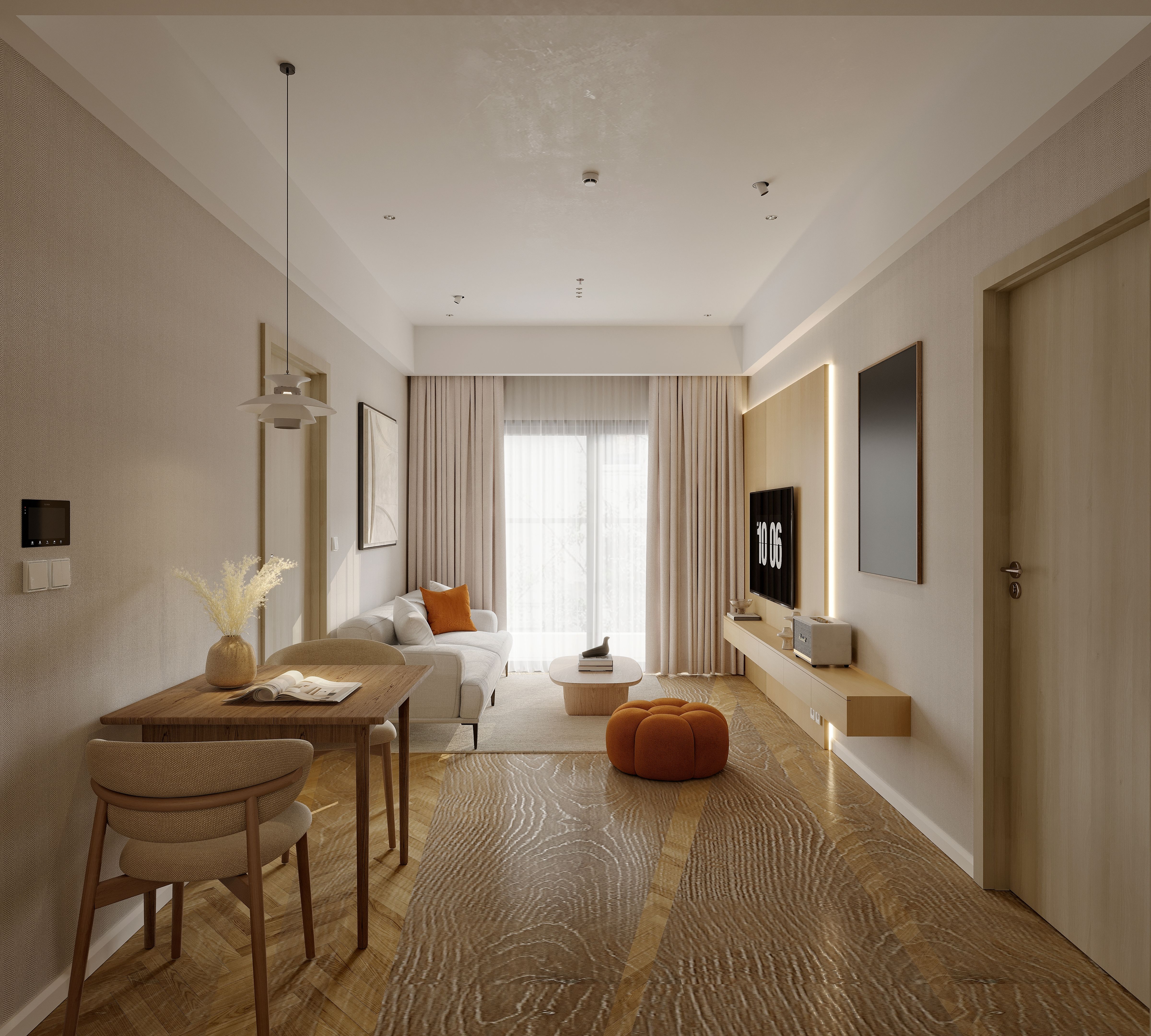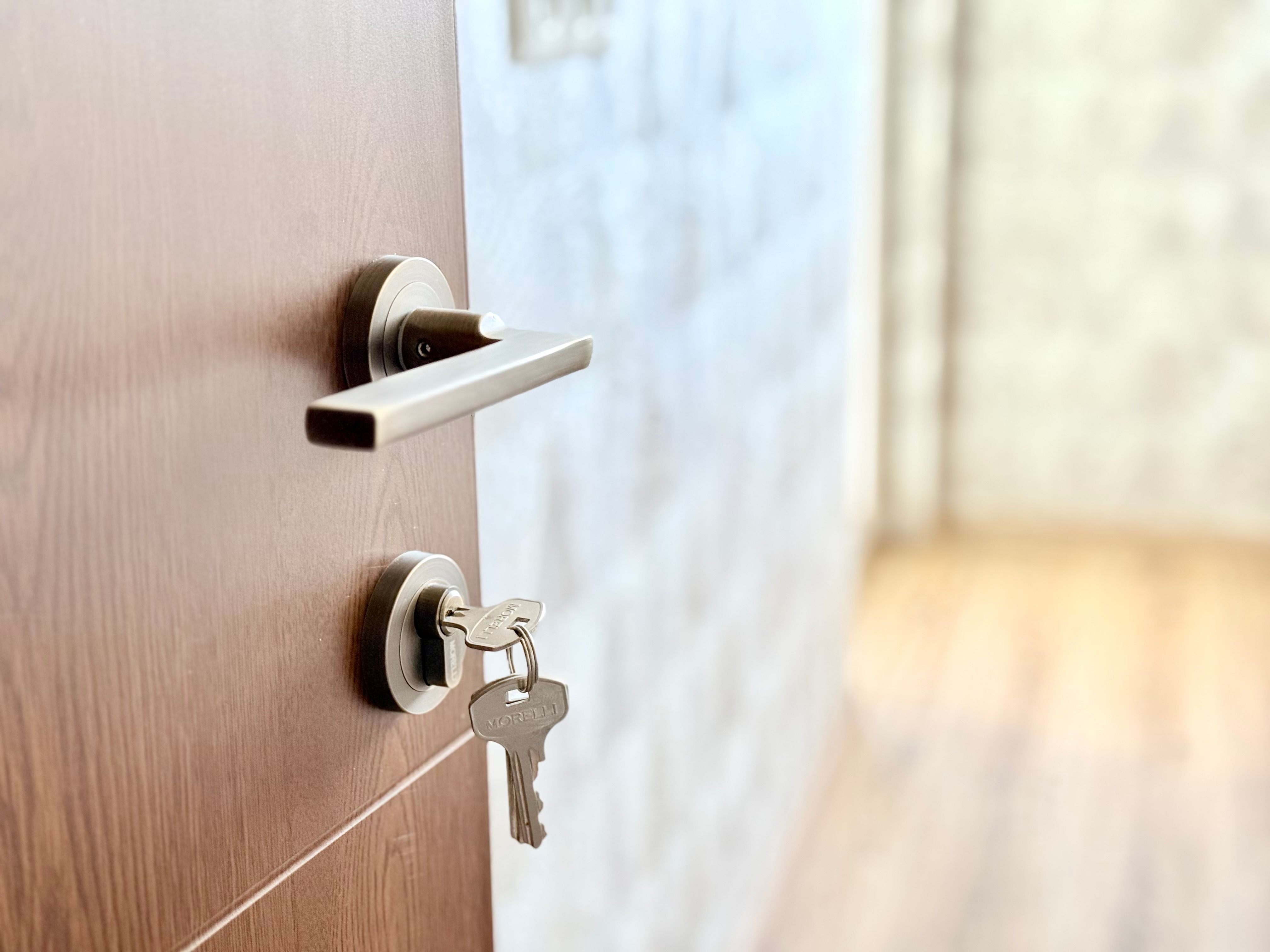Case Study: How DingTai Automatic Solid Wood Doors Enhance Luxury Apartments in the Middle East?
In the dynamic world of luxury real estate, every detail matters. This is especially true in the Middle East, where opulence and grandeur are at the forefront of architectural design. One critical element that has recently transformed the aesthetic and functional appeal of luxury apartments in the region is the introduction of DingTai Automatic Solid Wood Doors.
The Middle East is renowned for its architectural marvels and sophisticated living spaces. To cater to the discerning tastes of residents, developers continuously seek innovative solutions that blend style, security, and convenience. DingTai doors have emerged as a game-changer in this domain.

When Oriental Craftsmanship Meets Middle Eastern Luxury Apartments, Redefining High-End Living
Introduction: The "Facade Revolution" in the Middle East's High-End Real Estate Industry
In Dubai Palm Island, Abu Dhabi Marina District and other top global mansions gathered, the significance of a door has long exceeded the function itself, become a symbol of identity and aesthetics of life. However, the Middle East market on the choice of wooden door products has long been dominated by European brands, made in China was once labelled as "cheap" and "low-end".
This deadlock is being broken - Dingtai automatic solid wood door with oriental craftsmanship and intelligent technology fusion, successfully entered Dubai's top flat project "Pearl Tower", becoming the new favourite of high-end real estate developers in the Middle East. This case will reveal the strategy and value behind this "facade revolution".

Challenge: Special needs and barriers to trust in the Middle East market
1. Environmental adaptation challenges
- Extreme climate: under high temperature, high humidity and strong ultraviolet rays, ordinary wooden doors are easy to be deformed, cracked or discoloured.
- Cultural aesthetic differences: Middle East customers prefer luxury texture, but reject flashy design, the pursuit of "low-key solemnity".
2. Market perception dilemmas
Although China's wooden door production technology has been comparable to Europe, but the Dubai market for a long time the Chinese products are located in the "low-end clearance goods", to break through the trust barrier needs to cross the triple threshold:
- Proof of quality: verify the long-term stability and environmental standards (such as formaldehyde emissions ≤ 1.5mg / L).
- Cultural resonance: Oriental aesthetics into the international design language.
- Service guarantee: dealing with the complexity of transnational supply chain and installation and maintenance.

Breaking the game: the three core strategies of Dingtai automatic solid wood door
1. Technology-enabled: customised to desert climate
- Structural innovation: adopting cedar integrated wood core + natural wood veneer finish, the moisture content is strictly controlled at 8%-13%, through high-temperature drying and six-side sealing paint process, to resist the deformation of humidity and heat.
- Intelligent upgrading: Embedded with silent sliding rails and automatic sensor system to realise "contactless door opening", which is suitable for the Middle East families' double demand for convenience and privacy.
- Surface treatment: The use of nano UV protection coating ensures that the wood grain will last for a long time and live in harmony with the Dubai sunshine.
2. Design fusion: a dialogue between Eastern rhythms and Islamic aesthetics
- Refinement of Patterns: Chinese traditional Hui patterns are abstracted into geometric lines, echoing the infinite pattern metaphors in Islamic art.
- Material collision: dark walnut with brass inlays, retaining the warmth of solid wood and adding the luxury of metal, in line with the Middle East's aesthetic preference for "heavy texture".
- Spatial Narrative: The 4.2 metre high doors and invisible door frames are designed to enhance the depth and unity of the mansion.
3. Reinventing value: from "product output" to "standard output"
- Certification system: backed by ISO9001 quality management system and "China Environmental Certification" to break the quality doubt. Scenario experience: provide developers with "total solution for foyer", including light linkage and security integration.
- Scenario experience: Provide developers with "total foyer solutions", including lighting linkage and security integration, so that the door becomes the central interface of the smart home.
- Service localisation: Setting up a warehouse centre in Dubai, shortening the delivery cycle to 20-25 days and providing a "10-year warranty".

Outcome: Transformative evidence from the Pearl Tower project
1. Quality improvement data
- Optimisation of energy consumption: the thermal insulation of the doors reduces air-conditioning energy consumption by 12%, a plus for Dubai's "Green Building Certification".
- Quiet performance: 38dB of sound insulation, effectively isolating the city noise from the interior space of the home.
- Customer feedback: 97% of homeowners ranked 'automatic solid wood doors' as one of the top three most satisfying details of their property.
2. Brand premium breakthrough
The Pearl Tower project was realised through the addition of Dingtai Wooden Doors:
- Pricing increase: 15% premium over flats in the same location, and the door became a "visual business card" in marketing.
- Cultural value: the developer commented: "This door is the best footnote of globalised design, as it tells the story of the subtlety of the Orient and the luxury of the Middle East at the same time".
Inspiration: Reconstructing the Path of High-end Manufacturing in China
The case of Dingtai proves that breaking through the international market needs:
1. Precise pain points: shift from "selling products" to "solving specific scenarios", e.g. developing anti-humidity and heat-resistant structures for the Middle East.
2. Aesthetic localisation: transform Chinese cultural elements into a universal design language, rather than simply piling up symbols.
3. Eco-coordination: building supply chains with local developers and designers, upgrading from "OEM" to "standard-setter".
Conclusion: The Philosophy of Doors, the Philosophy of Business
A door is both the starting point of a space and the boundary of a brand. The success of Dintai automatic solid wood door in the Middle East is not only the triumph of craftsmanship and technology, but also because it proves that:
The upgrading road of "Made in China" is a cognitive revolution from "passive OEM" to "active definition of value".
When a door can simultaneously guard the scorching sun of Dubai, respond to the aesthetics of Islam, and carry the craftsmanship of the East, it becomes a bridge for civilisation dialogue - and this is the most moving part of global business.